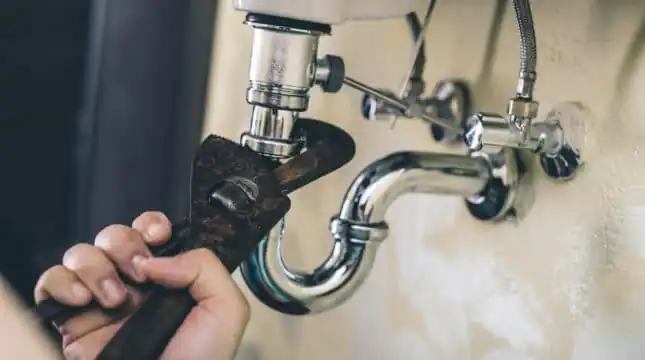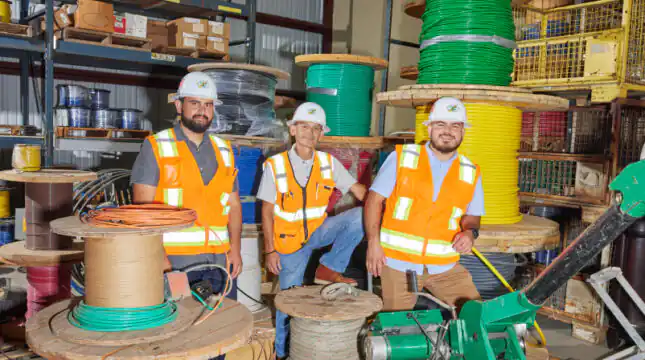Minnesota
License required: Yes
Licensing authority: Minnesota Department of Labor and Industry (DLI)
Plumbing businesses in Minnesota must hold a plumbing contractor license through the Department of Labor and Industry. This license authorizes business owners to advertise, bid and perform plumbing work on residential and commercial projects.
To qualify, the business must employ a licensed master plumber who serves as the responsible individual, submit proof of insurance and bonding and complete business registration requirements. Licenses are renewed every two years.
Required business insurance in Minnesota:
- Workers’ compensation insurance for businesses with one or more employees.
- General liability insurance with minimum coverage of $50,000 per person, $100,000 per occurrence, and $25,000 property damage is required.
- Surety bond of $25,000 is required for all licensed plumbing contractors.
Learn more about plumber license and insurance requirements in Minnesota.
Mississippi
License required: Yes
Licensing authority: Mississippi State Board of Contractors (MSBOC)
Plumbing businesses in Mississippi must hold a plumbing contractor license from the State Board of Contractors to advertise or perform plumbing work valued at $50,000 or more for commercial projects or $10,000 or more for residential jobs.
Applicants must pass trade and business exams, provide financial statements and submit proof of insurance and bonding. A qualifying individual with plumbing experience must be listed on the license application. Licenses are renewed every year.
Required business insurance in Mississippi:
Missouri
License required: No (statewide)
Licensing authority: Local city or county building departments
Missouri does not issue a statewide plumbing license. Plumbing businesses must be licensed locally through city or county building departments to perform plumbing work or pull permits.
To operate a plumbing business, you typically need a local plumbing contractor license and must employ a licensed master plumber. Requirements vary by jurisdiction but usually include verified experience, passing a trade exam and submitting proof of insurance and bonding.
For example, in Jefferson City, plumbing contractors must be licensed through the Building Regulations Division, which requires a current certificate of insurance and a $5,000 surety bond.
Required business insurance in Missouri:
Montana
License required: Yes
Licensing authority: Montana Department of Labor and Industry — Board of Plumbers
Plumbing businesses in Montana must employ or be owned by a licensed master plumber through the Board of Plumbers. Only master plumbers may advertise plumbing services, pull permits and contract plumbing work.
Applicants must hold a journeyman plumber license for at least four years, pass the master plumber exam, and provide proof of insurance and business registration. Licenses must be renewed annually.
Required business insurance in Montana:
Nebraska
License required: No (statewide)
Licensing authority: Local city or county plumbing boards; Nebraska Department of Labor — Contractor Registration
Nebraska does not issue a statewide plumbing license. Plumbing businesses must meet local licensing requirements through city or county plumbing boards to perform work or pull permits.
Plumbing contractors who employ workers must register with the Nebraska Department of Labor before starting projects. Local requirements often include experience verification, trade exams and proof of insurance or bonding.
Required business insurance in Nebraska:
Nevada
License required: Yes
Licensing authority: Nevada State Contractors Board (NSCB)
Plumbing businesses in Nevada must hold a C-1 Plumbing and Heating Contractor license issued by the State Contractors Board to advertise or perform plumbing work for compensation. This license allows contractors to install, repair and maintain plumbing systems in residential and commercial buildings.
Applicants must show four years of experience as a journeyman or supervisor, pass trade and business exams, and submit financial statements and proof of insurance and bonding. Licenses are renewed every two years.
Required business insurance in Nevada:
New Hampshire
License required: Yes
Licensing authority: New Hampshire Mechanical Safety and Licensing Board (OPLC)
Plumbing businesses in New Hampshire must employ or be owned by a licensed master plumber through the Mechanical Safety and Licensing Board. Only master plumbers may contract plumbing work, advertise services, or pull permits.
Applicants must have a journeyman plumber license for at least six months, complete state-approved training, and pass the master plumber exam. Licenses must be renewed every two years.
Required business insurance in New Hampshire:
New Jersey
License required: Yes
Licensing authority: New Jersey Division of Consumer Affairs — State Board of Examiners of Master Plumbers
Plumbing businesses in New Jersey must be owned by or employ a licensed master plumber through the State Board of Examiners of Master Plumbers. Only master plumbers may advertise plumbing services, pull permits or contract plumbing work.
Applicants must have at least four years of experience, including one year as a journeyman plumber, complete approved apprenticeship training and pass trade and business exams. Licenses must be renewed every two years.
Required business insurance in New Jersey:
Learn more about plumber license and insurance requirements in New Jersey.
New Mexico
License required: Yes
Licensing authority: New Mexico Regulation and Licensing Department — Construction Industries Division (CID)
Plumbing businesses in New Mexico must hold a plumbing contractor license issued by the Construction Industries Division. This license allows business owners to advertise, bid, and perform plumbing work for compensation.
Applicants must have at least four years of experience, pass the trade and business exams, and submit proof of financial responsibility, insurance and bonding. The main classifications are MM-1 (Plumbing) and MM-98 (Mechanical), depending on project scope.
Required business insurance in New Mexico:
- Workers’ compensation insurance for businesses with three or more employees.
- General liability insurance is required for contractor licensing.
- Surety bond of $10,000 is required for all licensed plumbing contractors.
New York
License required: No (statewide)
Licensing authority: Local city or county building departments
New York does not issue a statewide plumbing license. Plumbing businesses must be licensed at the local level to perform plumbing work or pull permits.
Each city or county sets its own licensing requirements, typically requiring contractors to employ or be owned by a licensed master plumber. Local rules often include experience verification, passing a trade exam and submitting proof of insurance and bonding.
For example, in New York City, plumbing contractors are licensed through the Department of Buildings (DOB), which requires a master plumber license and proof of insurance.
Required business insurance in New York:
North Carolina
License required: Yes
Licensing authority: North Carolina State Board of Examiners of Plumbing, Heating, and Fire Sprinkler Contractors (NCBE)
Plumbing businesses in North Carolina must hold a plumbing contractor license. License classifications are Class I, Class II, and Restricted Limited. Class I and Class II determine allowable scope by building type and systems; Restricted Limited covers narrowly defined work.
Applicants generally need two years of experience, must pass trade and business exams, and provide proof of financial responsibility and insurance.
Required business insurance in North Carolina:
Learn more about plumber license and insurance requirements in North Carolina.
North Dakota
License required: Yes
Licensing authority: North Dakota State Plumbing Board
Plumbing businesses in North Dakota must employ or be owned by a licensed master plumber through the State Plumbing Board. Only master plumbers may advertise plumbing services, pull permits and contract plumbing work.
Applicants must hold a journeyman plumber license for at least one year, pass the master plumber licensing exam, and submit proof of insurance and business registration. Licenses are renewed annually, and continuing education is required for renewal.
Required business insurance in North Dakota:








